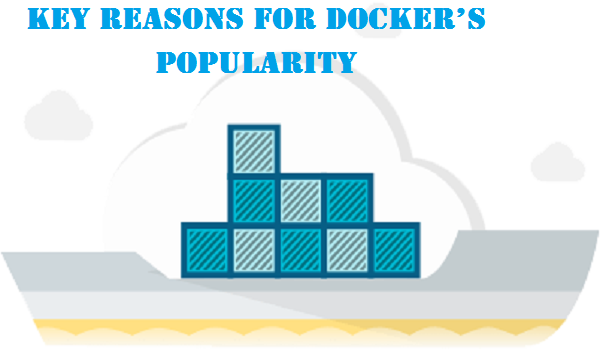Docker is an open source project which has become much popular in recent times and with good reasons too. It has made it possible for many more applications to run on old servers. Research shows that the Docker technology has indeed become successful in recent times and the app container market is expected to explode in the next few years. Even real world data supports this theory of large scale Docker adoption. A cloud monitoring system Data Dog revealed that a substantial portion of its customers had already adopted Docker. So, Docker adoption is on the rise as the benefits of using it are being identified by more and more businesses. Some of these benefits have been outlined as follows:
Since Docker works consistently across various platforms, it is gaining in popularity. There is likely to be differences among environments as far as release life cycles and development are concerned and these differences are typically due to different package versions. However, Docker is capable of addressing the differences because it can guarantee consistent environments right from developing to production. The Docker container is specifically configured to control all dependencies and configurations internally. So, one uses the same container right through to production to avoid any kind of manual interventions in the process. When you use the Docker set-up, you developers will not need to install an identical production setting. Developers may use their own systems for running Docker containers. Docker even allows you to make upgrades during product release cycles. Besides making changes to the containers, you can test these and then implement these same changes to current containers. Docker is popular because of this degree of flexibility it offers. So, Docker will let you build, test and even release images which may be deployed over many servers.
Another important benefit which Docker offers and which is responsible for making it popular is its portability. In the past, reputed cloud providers like Google Cloud Platform or GCP and Amazon Web Services or AWS have used Docker for this reason. So, Docker containers may be easily run within GCP or Amazon instances as long as the operating system of the host supports this. Besides the GCP and AWS, Docker is also found to work well with other IaaS providers like Open Stack and Microsoft Azure.
Docker is able to offer consistency across many development and release life cycles, helping in standardizing your environment. These containers work well also with GIT repositories. So, you may make changes to the images and control these; for instance, if you perform a part upgrade which breaks the environment you can always roll back to the previous Docker image version. So, compared to VM image creation and backup processes, Docker works faster.
Docker is popular as it makes sure your resources are segregated and isolated. In fact, according to Gartner reports, the containers are almost as good as VM Hosting hypervisors as far as isolating resources goes. Docker will ensure that every container owns its resources which are isolated from that of other containers. You may have different containers for different applications which run separate stacks. Docker also helps in clean app removal because every app has its own distinct container. Finally, Docker also makes sure that every application uses only the resources like space, memory and CPU which have been assigned to it. So, no application can use up all the available resources and cause downtime for others.
Docker is also popular for its security features. It ensures that all applications which run on containers are isolated from one another so that you have total control over the traffic. So, no container can actually look into what takes place in another container. Each container is allocated its own resource set. The Docker images which are found on Docker Hub have been signed digitally to guarantee authenticity. Moreover, because resources are limited and containers isolated, if one application does get hacked for some reason, the others are not affected.
These are some of the important reasons why so many IT businesses are using Docker. Docker lets developers pack, ship and operate applications in a lightweight and portable container that can run almost anywhere. Containers can offer instant portability and they do so by allowing developers to isolate the codes into one container. Docker introduces many new things which earlier technologies had not. It has made containers safer and easier to deploy. Besides it partners with other container providers like Google, Parallels and Red Hat and has introduced standardization to these containers. So, to sum up, Docker will ensure that you can run more apps on identical hardware; it also makes it easy for the developers to create ready-to-run applications; it streamlines deployment and management of applications.
Related Topic : Difference between Docker Image and Container?






 Live Chat
Live Chat